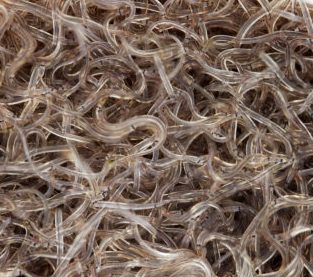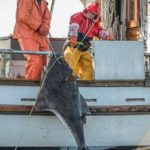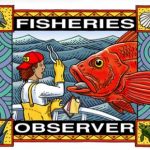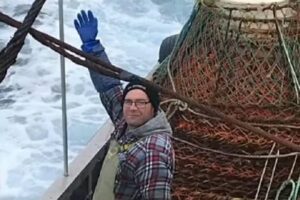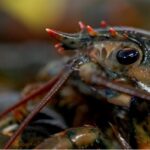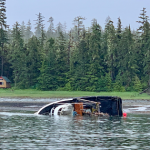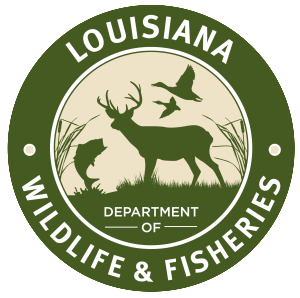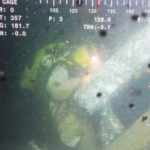Tag Archives: Indigenous fishermen
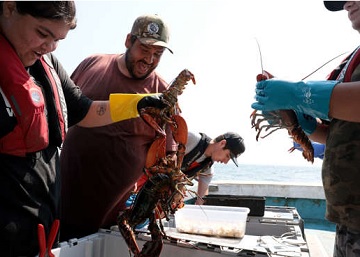
As lobster population booms off Canada, tensions rise between Indigenous and commercial fishermen
Under the close watch of federal officers on surrounding patrol vessels, Robert Sack navigated his old boat toward his clandestine traps in the cold waters that his people have fished for centuries, expecting to be arrested at any moment.,, Each trap had a special tag belonging to their band of the Indigenous Mi’kmaw people, who insist that a 269-year-old treaty grants them the right to fish when and how they want. But the government has rejected their assertion, and officers have seized their traps, confiscated their boats, and even arrested some of their fishermen. >click to read< 07>14
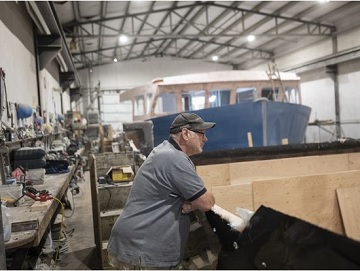
Politics: Lobster dispute, frustration with Ottawa could turn the tide on the Liberals in Nova Scotia
“Trudeau had the support of the First Nations in the last election. Not anymore. We’re voting NDP,” In rural Nova Scotia ridings such as South Shore-St. Margarets, where the fishery is a major employer, federal Fisheries Minister Bernadette Jordan is now fighting to keep her job,,, It’s just past the lunch break inside the main assembly shop at Yarmouth Boat Works, These $1.2-million state-of-the-art vessels, with kitchens, sleeping quarters, flat-screen TVs and showers, are meant to venture far out into the ocean and carry thousands of pounds of lobster back to land. Owner Steve Gee says while demand for new boats has slowed, finding skilled workers is hard, despite a good fibreglass technician getting $28 an hour, a decent wage in Yarmouth County. “I need 23 workers, but three showed up today,” he said. “Our latest job posting had 300 applicants, and not one of them was in Canada.” >click to read< 11:31
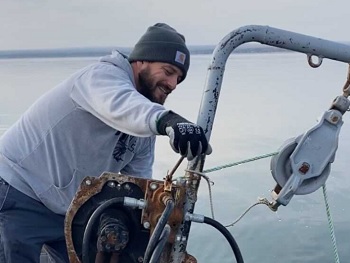
A group of Indigenous Fishermen want to take the Government of Canada to court with a class action lawsuit
Cody Caplin is frustrated. “They just keep taking away from me and my family,” he says. “The “they” he’s referring to are officers from the federal Department of Fisheries and Oceans, who Caplin alleges keep him under surveillance. He says these officials are often around when he comes back to the wharf from fishing. “If we go drop traps, they’ll park their vehicle, walk on down to our boat, and say ‘you guys can’t put those traps in the water without tags.’ [And I’ll say] ‘well, actually, we can,’” he says. That’s why Caplin is part of a group of Mi’kmaq fishermen from across Atlantic Canada looking to launch a class action lawsuit against the Canadian government, claiming that their rights are not being respected. >click to read< 20:33

Indigenous fishermen to assert treaty right for lobster fishing during court case
The stage is now set in Nova Scotia for another round in the court battles over Indigenous fishing rights. The lawyer for four Mi’kmaw fishermen appeared by phone Tuesday in Yarmouth provincial court. The men admit they were fishing for lobster aboard the vessel Charlene Helen off Pinkney’s Point, Yarmouth County, in September 2019. The area they were fishing in is part of Lobster Fishing Area 34, which was closed to fishing activity at the time. >click to read< 08:56
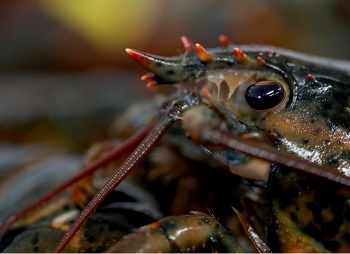
DFO: moderate livelihood fisheries must occur during commercial season
The Trudeau government will announce conditions for the authorization of moderate livelihood fisheries Thursday, including the expectation that those fisheries take place within existing commercial seasons. The Assembly of Nova Scotia Mi’kmaw Chiefs did not respond to a request for comment, but Mi’kmaw leaders and some academics have insisted the moderate livelihood fishery poses no risk to stocks because it is too small. The office of Fisheries and Oceans Minister Bernadette Jordan declined to comment in detail on DFO’s position until it is released Thursday, except to say the decision is based on conservation. >click to read< 07:10
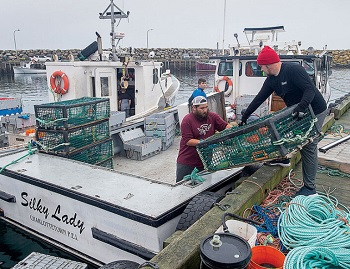
Why a clash over crustaceans is roiling Canada
It’s a battle about jobs and livelihoods, ethnic identities and cultures, and deeply embedded family and social traditions. Yet it’s also a clash about something else: the future of what was once one of the most fecund fisheries in the world. Both sides recognize they have a shared interest in keeping the industry thriving in a place that has been traumatized by declining fish stocks. This is especially true at a time when the pandemic has temporarily cut off customers for the area’s succulent crustaceans. >click to read< 19:05
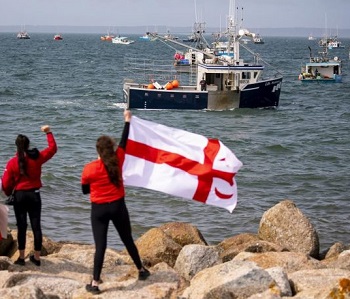
The ‘lobster wars’ rocked Atlantic Canada two decades ago.
It was 21 years ago that a small fleet of Esgenoôpetitj fishing boats took to the waters off western New Brunswick, where the Miramichi River meets the ocean. They had been fishing for lobster in the weeks before as part of their ceremonial fishery, harvesting enough for a feast that would take place at the end of their annual powwow. But on Sept. 17, 1999, the Supreme Court of Canada had released a ruling on Donald Marshall’s case. The Mi’kmaq man had been arrested in Cape Breton, N.S., in 1993 for catching and selling eels out of season. His case went all the way to the Supreme Court, which formally acknowledged the right of Indigenous people to fish year-round for a moderate livelihood. >click to read< 09:46
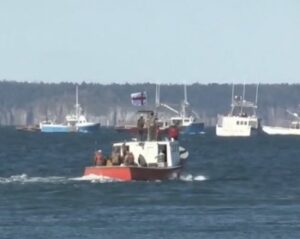
Nova Scotia Indigenous fishermen not backing down after traps removed
Indigenous and non-Indigenous fishermen have been locked in an ongoing dispute. Both sides say things were heated on the water on Sunday. “A Mi’kmaw fishermen went out to check his gear, and he was swarmed by commercial fishing vessels that were cutting him off and hauling their gear, stealing their traps – preventing our people from fishing,” says Sipekne’Katik First Nation Chief Michael Sack. “One of our boats was chased by a First Nations vessel, and they made an attempt to ram him and to board him,” says Sproul. “He immediately turned around and retreated here to Meteghan.” Sack says, while having their gear hauled up by commercial fishermen slows their operation a bit, they are in it for the long haul – with no plans to stop fishing. >video, click to read< 08:35

Consultation lacking on decision to reactivate licenses for Indigenous communities
The reactivation of dormant lobster fishing licences by the federal government has prompted a terse statement from the P.E.I. Fishermen’s Association (PEIFA) and the Maritime Fishermen’s Union (MFU). The two organizations say they were left out of consultation over the reactivation of 10 lobster licences by the Department of Fisheries and Oceans (DFO) in the Lobster Fishing Area (LFA) 25, located on the western end of the Northumberland Strait between P.E.I. and New Brunswick.,,, The statement said fishermen were “frustrated” by the lack of consultation prior to the decision and called for the federal government to bring together Indigenous and non-Indigenous fishermen’s organizations. >click to read< 09:54
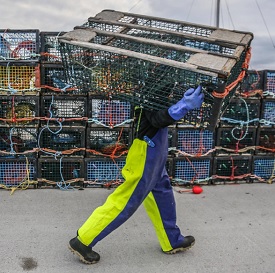
Fishermen clash over fishing rights across the Maritimes, tensions are running high
Canada’s highest court has refused to hear a Mi’kmaw fisherman’s appeal to have legal costs covered in a lawsuit against Ottawa – a potentially groundbreaking case seeking to define treaty fishing rights. The case comes as clashes between non-Indigenous and Indigenous fishermen intensify across the Maritimes. Observers warn the simmering tensions could lead to violence if the “moderate livelihood” fishery described in Donald Marshall Jr. case two decades ago is not clarified. “By not dealing with it, the government is responsible for continued conflict in the fishery.” >click to read< 08:55
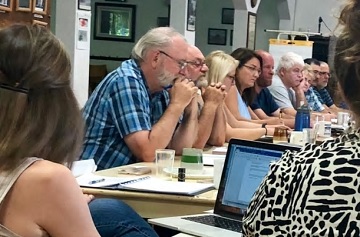
Mi’kmaq chiefs reject any ban on Indigenous fishing in marine protected areas
Nova Scotia Mi’kmaq chiefs say Indigenous fishermen should be exempt from any prohibition on fishing within marine protected areas because of First Nations’ treaty rights. “Our concerns and our input should have a greater weight in the decision making process than those of, for example, non-Mi’kmaw commercial fishers,” said Twila Gaudet, director of consultation for the Assembly of Nova Scotia Mi’kmaq Chiefs. That statement was part of a submission made to a federal advisory panel charged with developing standards for marine protected areas. The Trudeau government has committed to protect 10 per cent of coastal waters and oceans by 2020. >click to read<09:49
Mi’kmaq chief says there are bigger fish to fry than lobster
 A prominent Nova Scotia First Nation chief says he does not blame Mi’kmaq fishermen if they are using their ceremonial fishing licences to try to make a moderate living outside the commercial lobster season.,, Non-Indigenous fishermen have been protesting at wharves, calling for the Department and Fisheries and Oceans to intervene in what they say is the illegal sale of lobster by some First Nations fishermen.,, This year, the Trudeau government has taken conspicuous steps to improve First Nations access to fisheries in Atlantic Canada. click here to read the story 09:35
A prominent Nova Scotia First Nation chief says he does not blame Mi’kmaq fishermen if they are using their ceremonial fishing licences to try to make a moderate living outside the commercial lobster season.,, Non-Indigenous fishermen have been protesting at wharves, calling for the Department and Fisheries and Oceans to intervene in what they say is the illegal sale of lobster by some First Nations fishermen.,, This year, the Trudeau government has taken conspicuous steps to improve First Nations access to fisheries in Atlantic Canada. click here to read the story 09:35






